How Imperialism Map Works
The rules are simple, but the results can be dramatic.
The Basic Rules
-
Initial Territory Distribution
At the start of the season (Week 0), every team owns the territory closest to their home stadium or arena. This creates a Voronoi diagram where every point on the map belongs to the nearest team. Think of it as each team controlling their "natural" geographic territory.
-
Conquest Through Victory
When two teams play each other, the winner conquers all of the loser's territory. It doesn't matter if it's a blowout or a last-second field goal—winner takes all. There's no splitting territory or partial conquest.
-
Accumulation of Territory
As the season progresses, winning teams accumulate more and more territory. A team that wins against an opponent with lots of territory gets a massive expansion. Losing teams lose all of their territories.
Strategic Implications
The Imperialism Map creates fascinating "what-if" scenarios:
- Strength of Schedule Matters: Beating a team that's already accumulated lots of territory is more valuable than beating a team that's already lost theirs.
- Timing is Everything: An early-season loss can mean missing out on huge territorial gains later.
- Upsets Have Consequences: When a small-market team upsets a territorial empire, they suddenly become a major power on the map.
- Transitive Property: If Team A beats Team B, and Team B beat Team C, then Team A owns what used to be Team C's territory—even if they never play each other.
Edge Cases & Special Situations
Ties
In the rare case of a tie (NFL overtime rules), no territory changes hands. Both teams keep what they had before the game.
Neutral Site Games
Bowl games, playoffs, and neutral site games work the same way—winner takes all the loser's territory, regardless of where the game is played.
How to Read the Map
Colors
Each territory is colored with the controlling team's primary color. We use official team colors extracted from their branding guidelines.
Boundaries
The Voronoi diagram creates natural-looking boundaries based on geographic proximity to stadiums. These don't follow state or county lines—they're purely based on distance.
Time Slider
Use the slider at the top to travel through the season. For football, each notch is a week. For basketball, each notch is a day.
Territory Table
Below the map, see exactly how many territories each remaining team controls, sorted by territorial dominance.
Popular Sports Territory Maps

College Football Imperialism Map
The CFB imperialism map that started it all. Watch conference realignment happen in real-time as teams steal territory with every upset. Updated after every Saturday (and weeknight MACtion).
CFB Imperialism Map
NBA Imperialism Map
82 games means 82 chances to expand your empire. Track how teams claim territory on our NBA imperialism map through winning streaks.
NBA Imperialism Map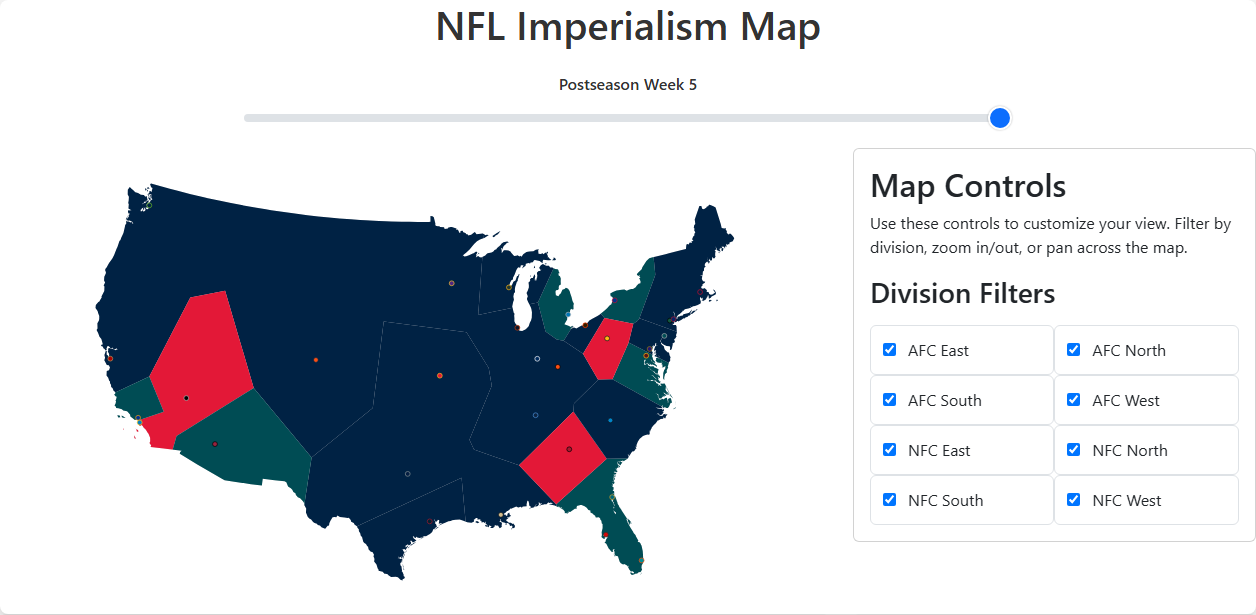
NFL Imperialism Map
32 teams. One map. Infinite trash talk potential. Our NFL imperialism map updates after every game, showing exactly how much territory your team owns (or just lost to a backup QB).
NFL Imperialism Map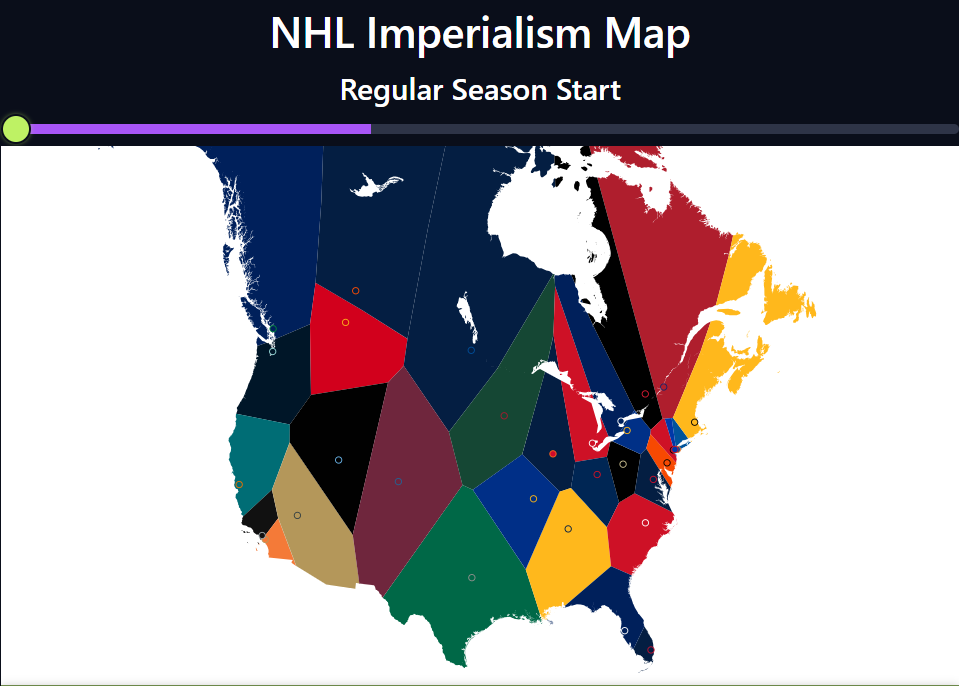
NHL Imperialism Map
82 games of ice-cold territorial conquest. Track which NHL teams control the most territory across North America.
NHL Imperialism Map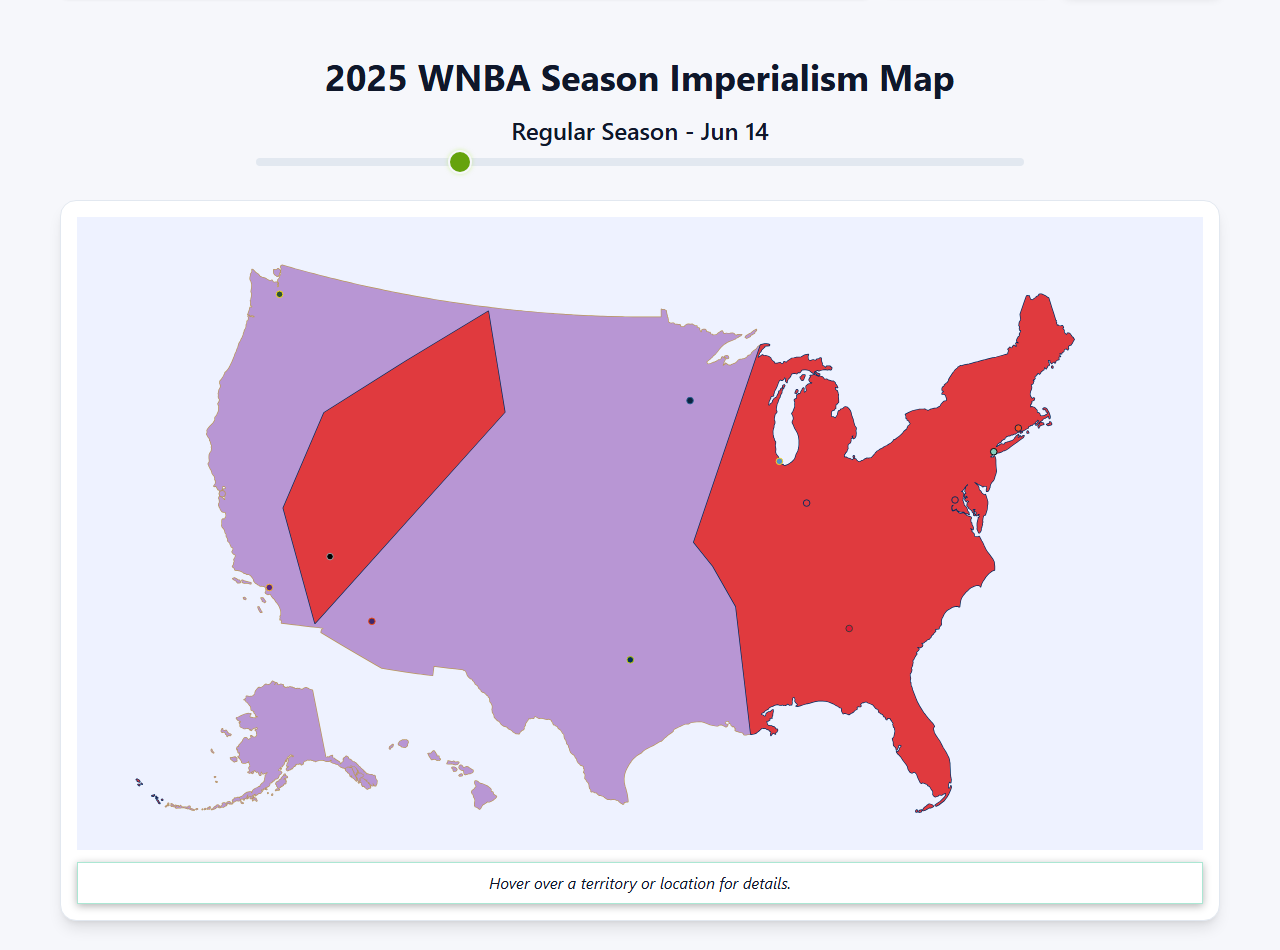
WNBA Imperialism Map
Explore WNBA imperialism maps across multiple seasons. See how Basketball teams compete for territorial dominance.
View Maps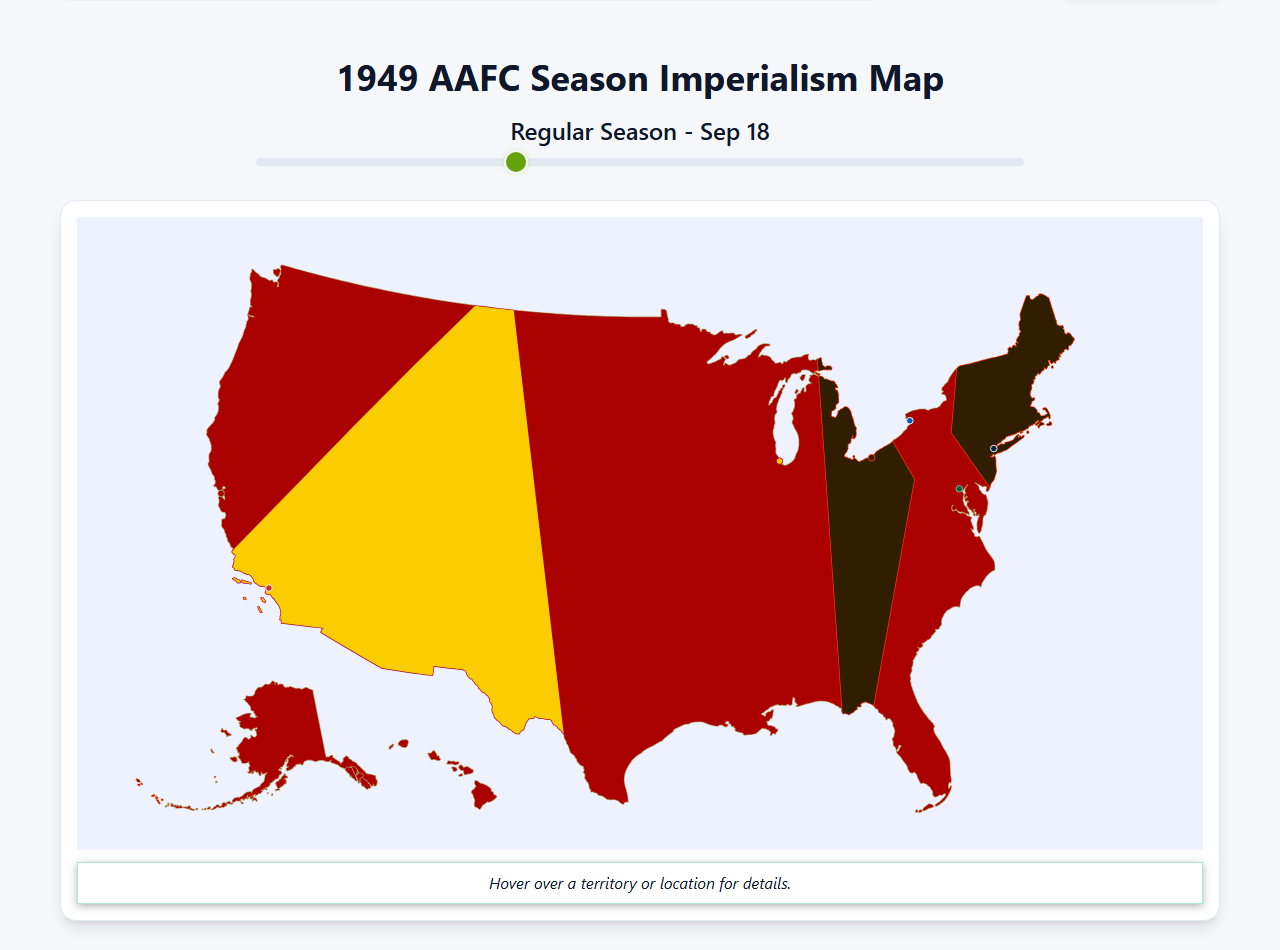
AAFC Imperialism Map
Explore AAFC imperialism maps across multiple seasons. See how Football teams compete for territorial dominance.
View Maps
ABA Imperialism Map
Explore ABA imperialism maps across multiple seasons. See how Basketball teams compete for territorial dominance.
View Maps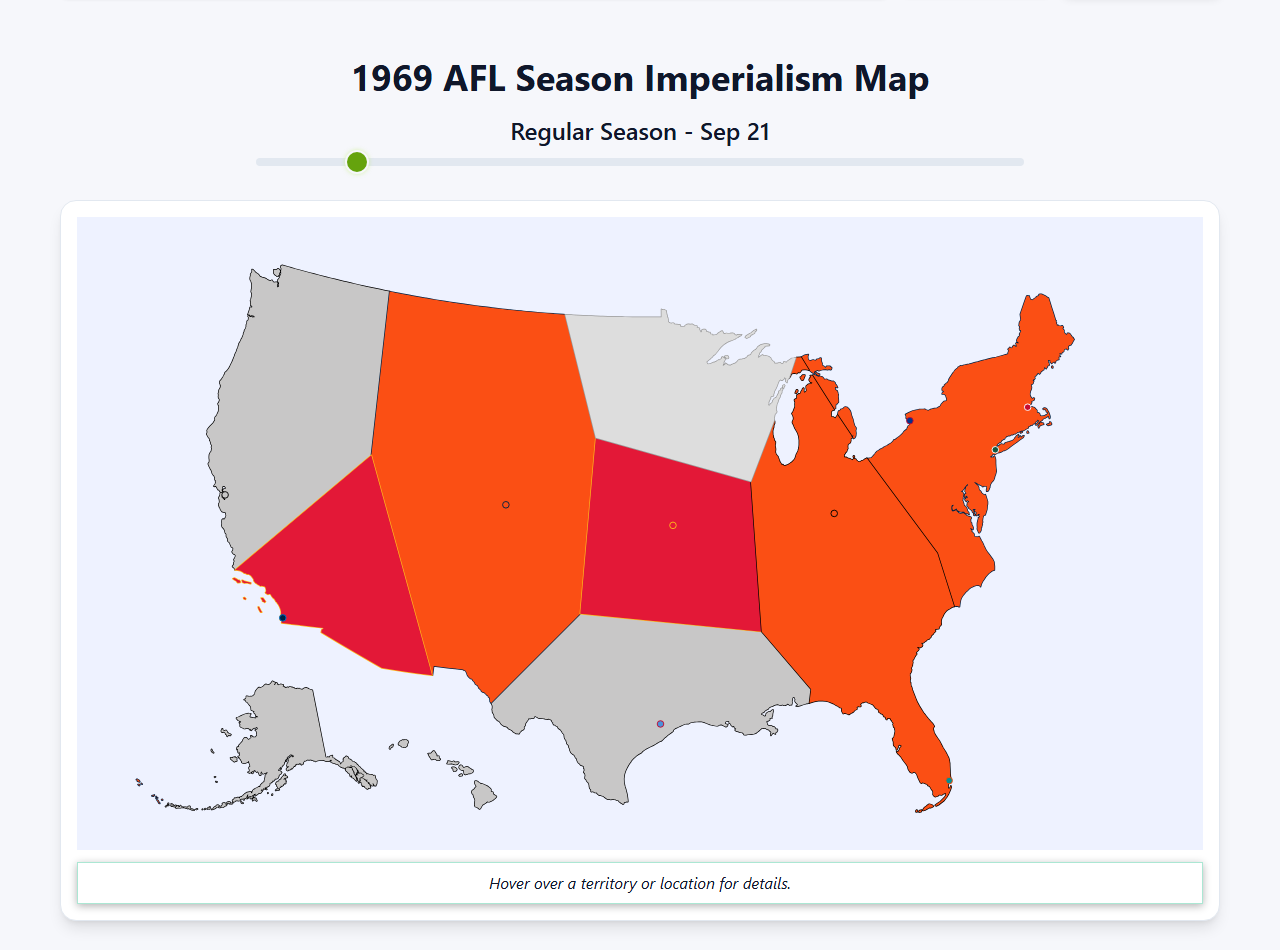
AFL Imperialism Map
Explore AFL imperialism maps across multiple seasons. See how Football teams compete for territorial dominance.
View Maps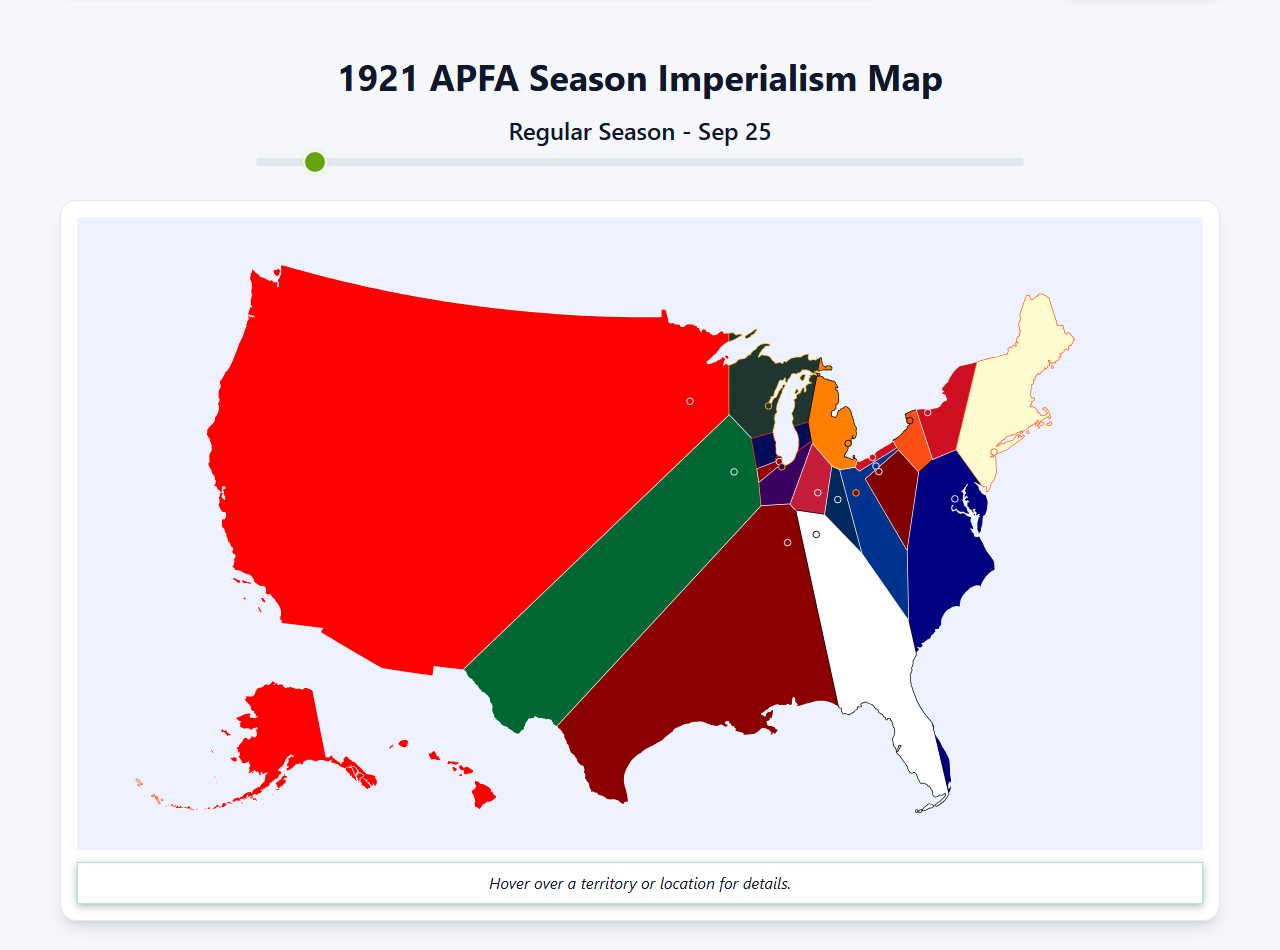
APFA Imperialism Map
Explore APFA imperialism maps across multiple seasons. See how Football teams compete for territorial dominance.
View Maps
WHA Imperialism Map
Explore WHA imperialism maps across multiple seasons. See how Hockey teams compete for territorial dominance.
View Maps